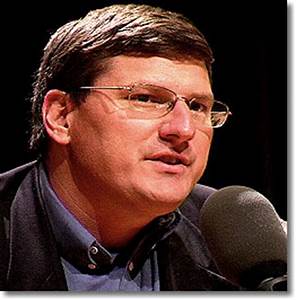According to The Wall Street Journal, White House National Security Advisor Jake Sullivan has been involved with a secretive "back channel" line of communication with top Russian officials as part of an effort by the U.S. and Russia to prevent the war in Ukraine from escalating into a nuclear conflict.
Among the officials named as representing the Russian conduit for this "back channel" are Yuri Ushakov, a senior foreign policy adviser to Russian President Vladimir Putin, and Nikolai Patrushev, the head of Russia's security council.
In comments made shortly after the WSJ article appeared, Sullivan confirmed that he has been working to keep communication channels between the United States and Russia open despite the war in Ukraine, adding that it was "in the interests" of the White House to maintain contact with the Kremlin.
Speaking at the Economic Club of New York, Sullivan didn't say that he himself has been engaged in the talks reported by the WSJ, only that the U.S. has "channels to communicate with the Russian Federation at senior levels."
Sullivan has publicly availed himself of such channels in the past, conducting telephone calls with both Ushakov and Patrushev about European security and Ukraine on Dec. 20, 2021, and on March 16. Sullivan alluded to the existence of a "back channel" with Moscow in September when speculation was rampant about the possibility of Russia using tactical nuclear weapons against Ukraine.
Sullivan publicly declared then that the Biden administration had "communicated directly, privately at very high levels to the Kremlin that any use of nuclear weapons will be met with catastrophic consequences for Russia."
Sullivan has a history of being personally involved in sensitive "back channel" contacts. In July 2012, Sullivan, then director of policy planning at the State Department, flew to Muscat, Oman, for secret meetings with Iran about a possible nuclear deal.
In March 2013, while serving as the national security adviser to then-Vice President Joe Biden, Sullivan was a member of a small delegation of U.S. diplomats who flew to Oman for a series of secret meetings with Iranian officials which culminated in the Joint Comprehensive Plan of Action, or JCPOA, better known as the Iran nuclear deal.
William Burns
But the key to who might be taking the lead in the current Russian "back channel" lies with the man who headed up the March 2013 delegation in Oman " William Burns, a career diplomat, who at the time served as deputy secretary of state, and is now Director of Central Intelligence.
His name is synonymous with "back channel."
It was Burns who, based on these secret Oman meetings, hammered out the initial draft of the JCPOA. The background story, described by Burns in his autobiography, aptly titled The Back Channel, is what made the long-time diplomat an attractive choice for Biden to head the C.I.A.
When the Biden administration wanted to discuss the escalating crisis surrounding Ukraine in the fall of 2021, it was Burns who was dispatched. In addition to meeting with Patrushev, Ushakov, and other senior Russian security officials, including his Russian counterpart, Sergei Naryshkin, the director of Russia's Foreign Intelligence Service, or SVR, Burns had a conversation with Putin by telephone.
This kind of high-level access is what makes Burns the ideal conduit for a substantive "back channel" between the U.S. and Russia.
(Note: You can view every article as one long page if you sign up as an Advocate Member, or higher).






